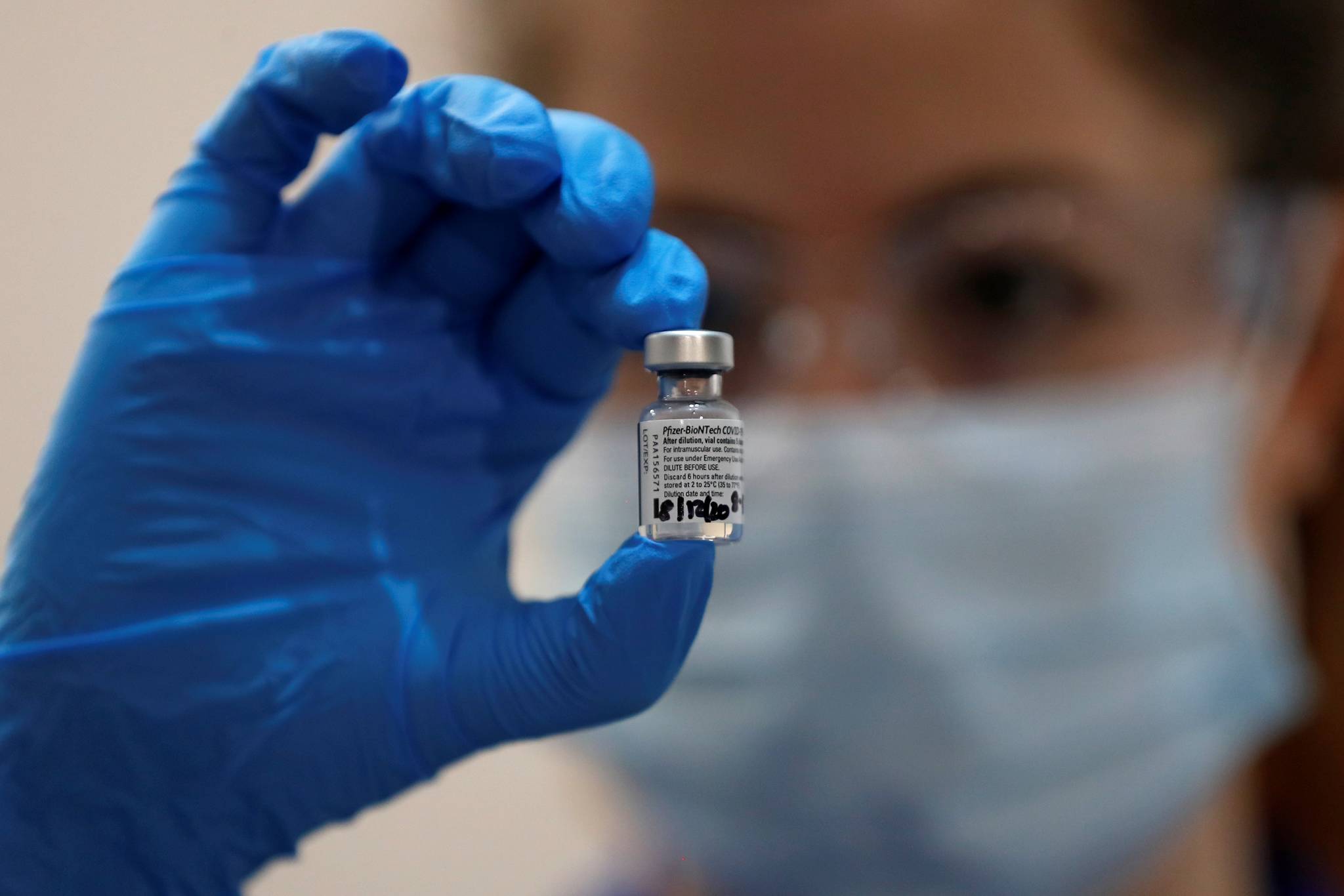The City and Borough of Juneau is expecting to receive fewer than 1,000 doses of the COVID-19 vaccine coming to Alaska as soon as next week, according to city staff.
During CBJ’s weekly coronavirus update, Robert Barr, emergency operations center planning section chief said the allotment will likely be fewer than what the city needs to for all the people included in the first stage of Alaska’s vaccine plan but additional shipments would follow.
According to the state’s three-phase vaccine plan, the first to receive the coronavirus vaccine are health care workers, long-term care residents and staff, first responders and anyone who may be asked to administer the vaccine such as community health aides.
Asked whether or not that first shipment would be able to meet the community’s needs, Barr said, “Probably not. Although we don’t quite know at this point in time. At this point, it depends on how many individuals are willing to take the vaccine.”
Bartlett Regional Hospital will receive 500 doses for staff from the state, infection preventionist Charlee Gribbon said Wednesday in an email.
“We are still determining how many we will vaccinate in a week. But we know that we will be able to vaccinate every health care provider that wants one,” she said.
Hospital staff are still developing the schedule for inoculations but hope to spread administration out in groups of 100 over three days, Gribbon said.
The majority of staff are excited about the vaccine, she said, but there are some concerns about side effects and long-term impacts.
“Vaccines and medicines are always in the process of monitoring after they are released,” she said. “This mass vaccination effort on behalf of BRH staff will add to the confidence that everyone can have confidence and more knowledge about how vaccines work, and their expected impacts on our immune system, and that this is a very exciting time to be involved in health science.”
Hospital staff are required to protect against the spread of respiratory viruses and there is already a policy in place for flu vaccines, Gribbon said. Staff are required to get a flu vaccine or wear a mask, she said, and it will be the same for the COVID-19 vaccine.
[Vaccines possible by the end of next week, but questions persist]
The Food and Drug Administration is meeting Thursday to review a newly developed vaccine from pharmaceutical company Pfizer and possibly issue an Emergency Use Authorization that would allow the vaccine to be shipped to U.S. states and territories, said the state’s Chief Medical Officer Dr. Anne Zink on Monday. However, the drug cannot be administered until the federal Centers for Disease Control and Prevention’s Advisory Committee on Immunization Practices issues guidance for the vaccine. ACIP will meet shortly after the vaccine is approved by the FDA, according to Tessa Walker Linderman of the Alaska Department of Health and Social Service’s COVID-19 Task Force.
While a vaccine is expected shortly, hospital capacity in both Anchorage and Seattle is becoming stretched as COVID-19 cases increase in both states, said city EOC incident commander Mila Cosgrove during the Tuesday update. Juneau relies on both those cities for medivacs and more advanced medical care, she said, and if hospitals in both cities are no longer able to take patients from Juneau that will affect how the city manages the virus.
Pfizer’s vaccine was approved by the U.K. government and administered to a patient there Tuesday, according to the BBC, and Wednesday the Canadian government also cleared the drug for use. Two British nurses with a history of allergies reported short-lived reactions to Pfizer’s vaccine, the Associated Press reported Wednesday. British regulators are investigating the reports and are advising people with a history of serious allergic reactions to skip the vaccine for now, The AP reported.
The state of Alaska has set up a new website covidvax.alaska.gov with more information about the state’s vaccine plan.
• Contact reporter Peter Segall at psegall@juneauempire.com. Follow him on Twitter at @SegallJnuEmpire.

